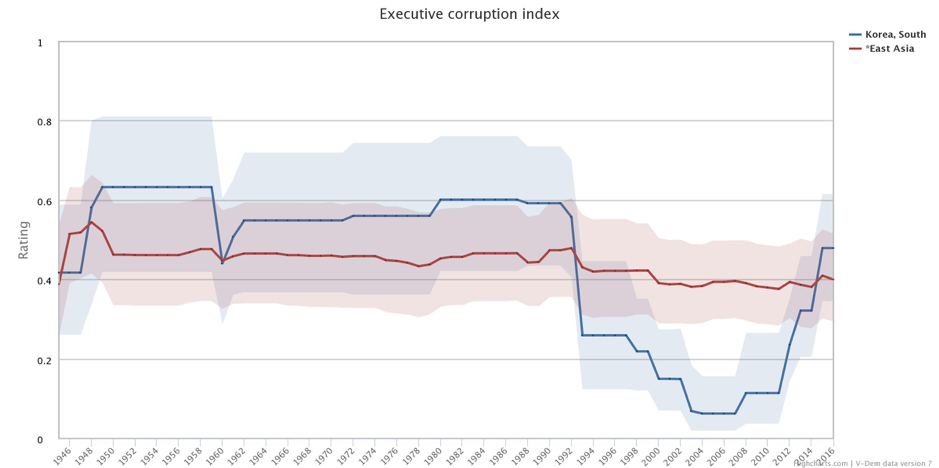Executive Corruption Index in South Korea
By: V-Dem Staff
May 04, 2018
South Korea’s ex-president Park Geun-Hye was sentenced to 24 years in jail on 6 April 2018 after being impeached in March last year. She has been found guilty of abuse of power and corruption, marking the end of the corruption scandal which shook South Korea last year. Park was accused of colluding with her friend and informal advisor Choi Soon-sil. Choi used her presidential connections to persuade South Korean conglomerates to donate millions of dollars to non-profit foundations she controlled. Park colluded with Choi and gave her unauthorised access to state documents.
In this week’s graph, we compare the Executive Corruption Index in South Korea to the average observed in East Asia. This index depicts how routinely members of the executive, or their agents grant favours in exchange for bribes, kickbacks, or other material inducements, and how often they steal, embezzle, or misappropriate public funds or other state resources for personal or family use.A low value indicates this is extremely uncommon while a high value suggests this regularly happens.
A relatively high level of executive corruption is observed in South Korea from its independence in 1948, however, falling since the introduction of democratic governance in the 1980s. While the level of executive corruption dipped to below East Asia’s average in 1993, it began picking up again in 2005 and overtook the East Asian average in 2014. This is not the first time a South Korean president has been involved in corrupt exchanges. During the presidency of former President Kim Dae Jung from 1998 to 2003, two of his sons were jailed for taking bribes. The current President Moon Jae-In ran a campaign pushing for a clean government as a key objective. Will he succeed? Only time will tell.
To learn more about democracy in South Korea and beyond, use the Online Analysis Tool on V-Dem.net.


